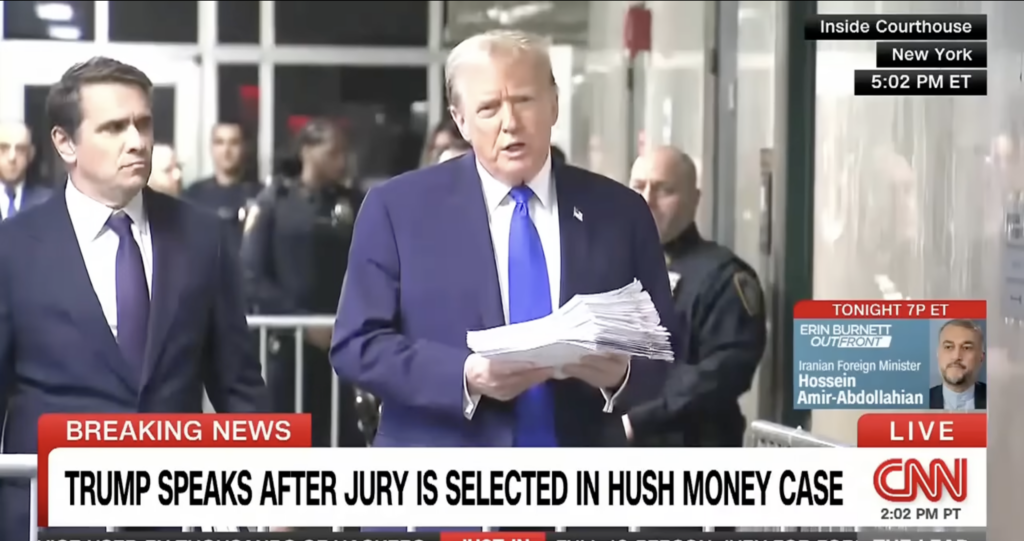Biden’s SEC urged to withdraw broad climate proposal due to ‘conflict of interest
GOP Lawmaker Urges SEC to Withdraw Green Energy Proposal
A Republican lawmaker is calling on the Securities and Exchange Commission (SEC) to withdraw a controversial green energy proposal due to concerns over a potential conflict of interest and legal issues. Internal emails obtained by the Washington Examiner and Fox News reveal extensive communication between the SEC and climate software developer firm Persefoni leading up to the regulator’s proposal. The proposal, which would require public companies to disclose their greenhouse gas emissions, has sparked criticism from free-market advocacy groups who fear it could lead to a crackdown on oil and gas appliances.
Concerns Over Statutory Authority and Administrative Procedures
Representative Byron Donalds (R-FL), a member of the House Financial Services Committee, expressed his concerns in a letter to SEC Chairman Gary Gensler. Donalds questioned the SEC’s authority to enforce the proposed climate disclosure rule and raised doubts about the agency’s compliance with the Administrative Procedures Act during the rule’s development. He referenced a 2011 court ruling against the SEC, stating that the agency should not manipulate the costs and benefits of the rule. Donalds urged Gensler to withdraw the proposed rule and refocus the SEC on its core mission.
Republican Pressure and Biden Administration’s Climate Change Initiatives
This letter represents the latest effort by Republicans to pressure the SEC to reverse its course on the proposal. The SEC is expected to make a decision on the rule next spring, as the Biden administration prioritizes climate change initiatives. The proposal has garnered support from Persefoni and Ceres, a nonprofit organization that has influenced President Joe Biden’s green energy agenda. Ceres and Persefoni commissioned a cost-benefit analysis study for the proposal, which cited Ceres and Climate Action 100+ as key contributors.
Concerns Over Ceres’ Relationship with Climate Action 100+
Ceres faced scrutiny last year when it was subpoenaed by the House Judiciary Committee over concerns that its relationship with Climate Action 100+ violated antitrust law. In his letter, Donalds referenced emails obtained by a watchdog group, which revealed a meeting between the SEC, Persefoni, and the lobbying firm Boundary Stone Partners. The emails also showed that Persefoni’s climate management and carbon accounting services were discussed with various government agencies.
Allegations of Conflicts of Interest
Donalds highlighted the involvement of Kristina Wyatt, a former SEC employee who later joined Persefoni. Wyatt allegedly played a role in crafting the SEC proposal and had discussions with Persefoni’s Senior Vice President of Strategic Market Engagement, Mike Wallace. Donalds expressed concern over potential job openings at Persefoni and Wyatt’s intention to join the firm. Additionally, the SEC was reportedly given advance notice of the Persefoni-Ceres study by Tim Mohin, Persefoni’s then-chief sustainability officer.
In an interview, a Ceres employee denied any special access to the federal government and praised the SEC for its diligence. The SEC did not provide a comment on the matter.
What political implications and ideological differences have emerged in the debate over the SEC’s green energy proposal, and how should the SEC ensure that its decisions are based on objective analysis and serve the best interests of investors and the economy
/h3>
Representative Donalds also outlined concerns about a potential conflict of interest between the SEC and Persefoni. The internal emails suggest a close relationship between the two entities, raising questions about the impartiality and objectivity of the SEC’s proposal. Donalds emphasized the need for transparency and fairness in the regulatory process, and expressed worries that the collaboration between the SEC and Persefoni may have compromised these principles.
The Impact on the Energy Industry
The proposed climate disclosure rule has met with resistance from industry advocates who argue that it could have a negative impact on the energy sector. Groups such as the American Petroleum Institute and the US Chamber of Commerce have voiced concerns that the rule may lead to increased regulatory burdens and stifle innovation in the oil and gas industry. Critics argue that the SEC should not be using its regulatory powers to favor one sector over another, but rather should focus on ensuring adequate disclosure practices across all industries.
Proponents of the rule, on the other hand, argue that it is necessary for addressing climate change and promoting sustainability. They believe that companies should be required to disclose their greenhouse gas emissions in order to provide investors with accurate information about the environmental impact of their portfolios. They argue that this will allow investors to make more informed decisions and drive capital towards more sustainable and environmentally-friendly companies.
Political and Partisan Considerations
The debate over the SEC’s green energy proposal also has political implications. The Republican Party has traditionally aligned itself with the interests of the oil and gas industry, while the Democratic Party has shown greater support for green energy initiatives. The proposal has exposed the ideological differences between the two parties and created a polarized environment in which the regulatory decision is being made.
Amidst the political divide, it is important for the SEC to ensure that its decisions are based on objective analysis and serve the best interests of investors and the economy as a whole. Given the concerns raised by Representative Donalds and other critics, it is imperative that the SEC reviews its proposal thoroughly and addresses any potential issues or conflicts of interest before moving forward.
The Way Forward
The SEC plays a crucial role in regulating the financial markets and ensuring investor protection. As such, it is essential for the commission to uphold transparency, objectivity, and fairness in its decision-making process. The concerns raised by Representative Donalds regarding the green energy proposal highlight the need for a comprehensive and unbiased evaluation of the rule’s potential impact and the SEC’s statutory authority to enforce it.
Ultimately, the withdrawal of the proposal would provide an opportunity for the SEC to reevaluate its approach to climate disclosure and consider alternative means of achieving the objectives of transparency and sustainability. It would also allow for a more robust and inclusive discussion involving stakeholders from various industries and perspectives.
In conclusion, the SEC green energy proposal has attracted significant attention and controversy. Representative Byron Donalds has called on the SEC to withdraw the proposal due to concerns over potential conflicts of interest and doubts about the agency’s authority and compliance with administrative procedures. The debate surrounding the proposal reflects ideological differences, industry interests, and political considerations. It is crucial for the SEC to address these concerns and ensure that its decisions promote transparency, objectivity, and the best interests of investors and the economy.
" Conservative News Daily does not always share or support the views and opinions expressed here; they are just those of the writer."





Now loading...